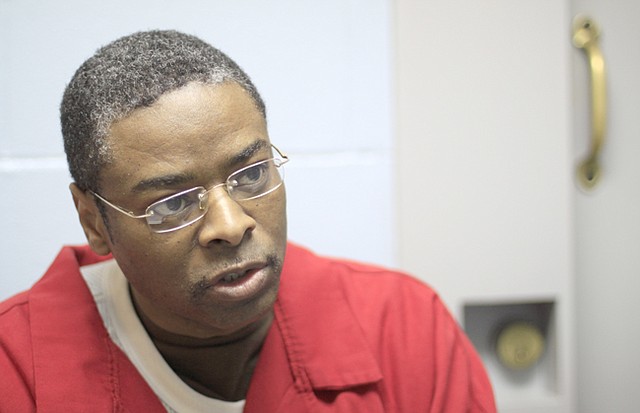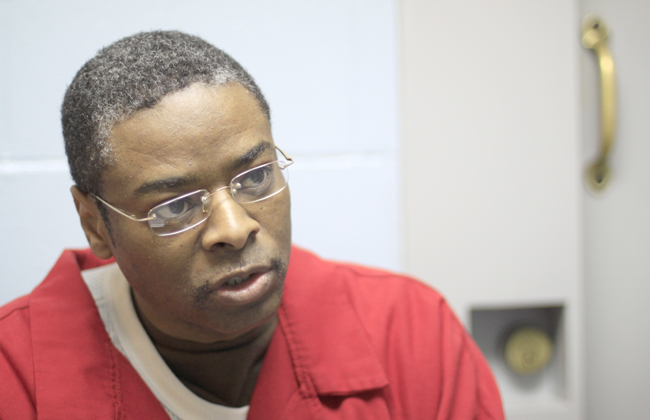Convicted murderer plays dual role in court
Wednesday, March 23, 2011
Representing himself at trial, Edward T. Kendrick III calls as a witness Edward T. Kendrick III.
On Tuesday, the ninth day of a hearing for a new trial on his 1994 first-degree murder conviction, Kendrick called himself to the witness stand and began asking - then answering - his own questions.
In the process, he revealed regret at what he called an "uninformed decision" made 17 years ago.
Prosecutors had offered to let him plead guilty to second-degree murder in his wife's death. If he had taken the plea, he could have been released in 2000. Instead, he is serving a life sentence.
Kendrick blamed his error on his attorney at the time, Hank Hill.
"If Mr. Hill would have explained the advantages and disadvantages of taking the 22-year plea I would have taken the plea and never would have taken it to trial," Kendrick testified Tuesday.
The hearing will continue today at 9:30 a.m.
Kendrick has represented himself throughout most of his post-conviction hearing, which has taken place over the past six weeks. But attorney Jeffrey Schaarschmidt has sat next to Kendrick during the hearings, serving as "armchair counsel" to advise Kendrick on legal points.
On Tuesday, Schaar-schmidt repeatedly stopped Kendrick's self-questioning to offer advice.
Portions of Kendrick's testimony turned into mini-legal lessons from Schaarschmidt, the judge and, in one instance, the prosecuting attorney.
Though Kendrick was supposed to ask himself a question then answer, playing two roles - attorney and witness - he often slipped into his own closing arguments, prompting cordial reminders from Hamilton County Criminal Court Judge Don Poole.
"'What did you say? What did you do?' Those are fact questions. Not 'What did you feel?'" Poole told Kendrick.
Kendrick's goal for the afternoon was to explain why he was requesting a new trial, Poole said, and most of his arguments challenge the work of Hill.
"That's what your whole case is about. That's why you called yourself as a witness," Poole explained to Kendrick.
At one point, Assistant District Attorney Lance Pope also challenged the type of questions Kendrick was asking himself, wanting him to stick to facts.
"What did Mr. Hill tell you about pleading guilty?" Pope asked.
"Told me he wouldn't advise me one way or another about pleading guilty," Kendrick responded.
Schaarschmidt used Pope's question as an example for Kendrick to follow when questioning himself. Stick to facts, Schaarschmidt said.
On March 6, 1994, Kendrick drove his car with his 2-year-old son and 3-year-old daughter inside to the BP Oil Store on Lee Highway where his wife Lisa Kendrick worked, court records state. He went inside the store and asked her to come outside.
Moments later, occupants in the store heard an explosion and one male witness later said he saw Kendrick standing over his wife with a Remington 7400 .30-06 rifle and saying, "I told you so."
Since his arrest, Kendrick has maintained that the rifle discharged accidentally and that he never intended to kill his wife.
One of his more than 40 challenges to his legal counsel during the original trial and the following appeal was that Hill did not do enough to discredit a witness who first told police he didn't see a weapon and did not mention the "I told you so" statement until he was on the witness stand.
The death of Lisa Kendrick and the following 17 years of appeals and requests for evidence have divided parts of Kendrick's family.
Endia Kendrick, 21, and Edward Kendrick, 20, are the two children who were in the car with him when he killed his wife. Each said they believe their father is guilty and have had little contact with him since her death.
Whitley Evans, Kendrick's daughter from another relationship, maintains that her father is innocent.
Both families have attended all nine days of the hearing, seated separately in the audience benches.

